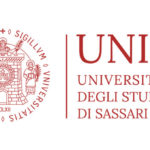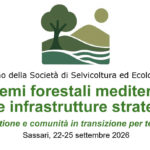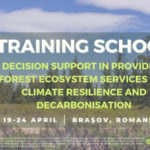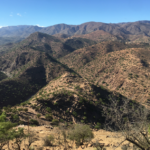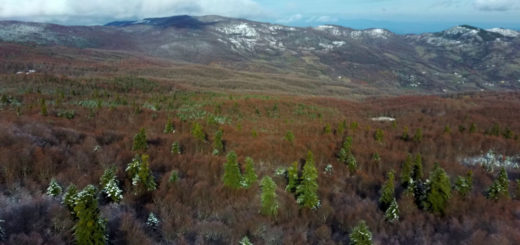Call for Posters to join the Forest Factor

Forests’ protection as essential element in the fight against climate change. The International Conference “The Forest Factor” will take place in Rome from 5 to 8 June claims how more nature and protected areas can fight climate change.
Forests are the key to an ecological future.
Still, investments in forest restoration and the global landscape should be tripled by 2030 to achieve global commitment internationally. Therefore, it urges to share and integrate responsibility for forests between institutions, sectors, and stakeholders, pointing out that forests transcend political, social, and environmental boundaries and are vital to biodiversity, the cycles of carbon, water, and energy on a
planetary scale.
So, the “Arma dei Carabinieri”-environmental Command (also recalling that the first forest
world congress was held in Italy in 1926), organises an international meeting involving international organisations, universities, research centres, environmental educators, civil society, governments, mass media to raise awareness about this issue.
Participants are called to present posters.
Anybody can send poster proposals (300 words abstract) to the Organising Committee, who is also available for more information, before April 30. The posters accepted by the Scientific Committee will be presented digitally during some poster sessions in the framework of the event.
Participation in the conference is free.
The posters (on case studies, surveys, and best practices) can focus on a conference
theme or be transversal to some topics:
- Relationships between protected areas, forests-climate, and related policies. Protected
areas are crucial for adaptation policies to climate change, biodiversity conservation, and
ecosystems. - Knowing, fighting, and preventing human disorders: forests face various threats, such
as land consumption, fires, global heating, and trade in protected species. The topics to be
considered include the level of naturalness of the forests and the dynamics of the forests impacted by humankind (forestry ecosystems in rewilding, managed forests, decay in forests).
- Research and training: a “transformative” change requires a shift from business-as-
usual paradigms to new ones, such as a cultural change, a conversion to complex
thinking, a holistic and not-linear paradigm, and the questioning of the relation between
“forest” and researcher. - Forests and climate: narration and action. Public opinion is not aware enough of the vital
role of forests. A new communication capable of bringing forests to the centre of
interest and attention is needed. - Forests champions: women, indigenous peoples, and youth. Community action is
crucial in the protection of forests. - Information, education, and training: participation as a protective factor. The contributions of this section will help to identify good practices and proposals for:
- mapping education in a formal context (schools and universities);
- take stock of expert training at each level (new challenges, weaknesses);
- developing the forest corps, parks, and centres of environmental education capacity to
- carry out educational activities in collaboration and synergy with schools and universities);
- creating or consolidating relationships between operators “in the field” and teachers as their allies;
- encouraging the involvement of stakeholders.
More information at www.rgpbio.it


